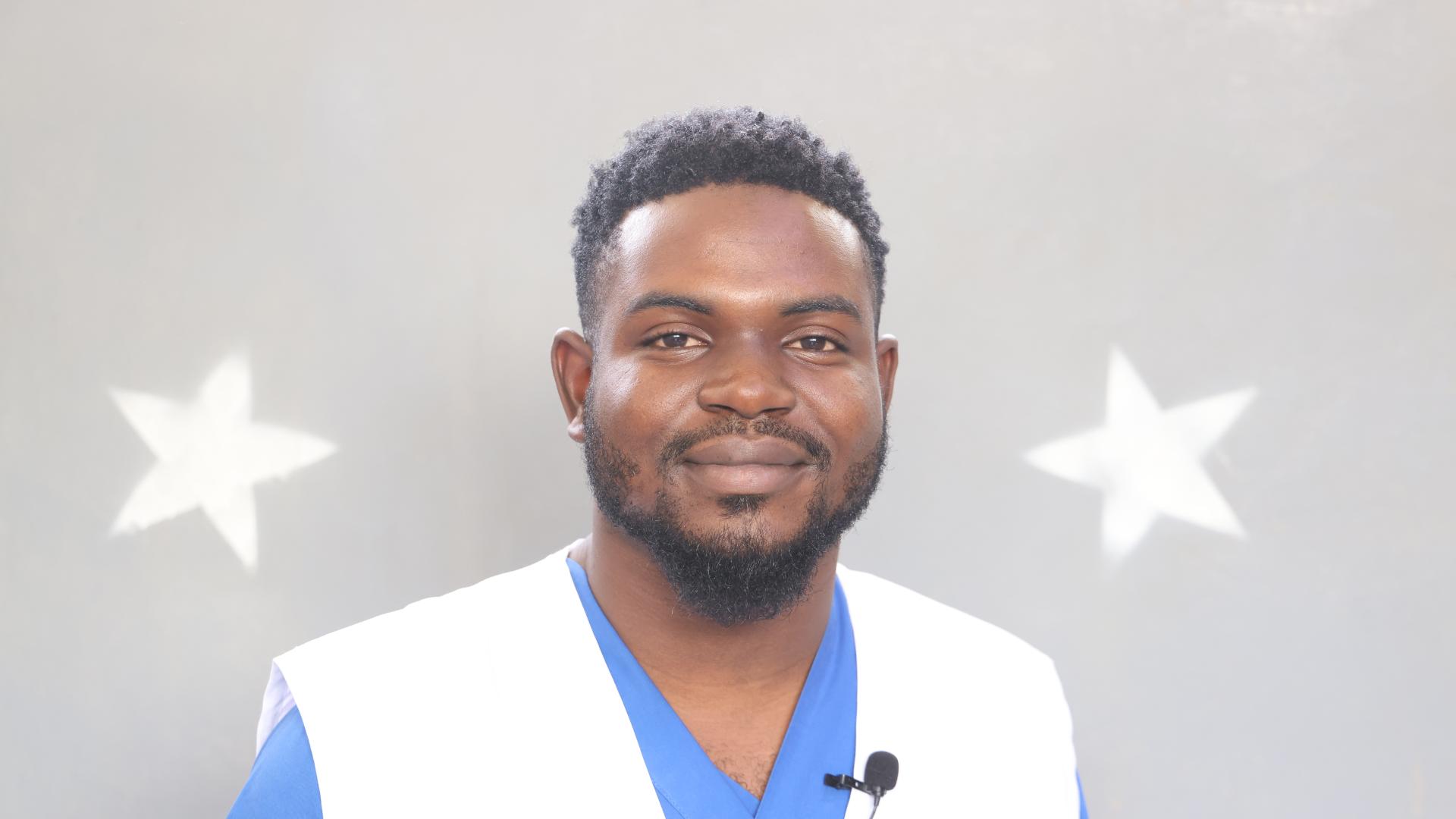Nigeria is estimated to account for more than 1 in 4 of all maternal deaths worldwide(Trends in maternal mortality 2000 to 2020: estimates by WHO, UNICEF, UNFPA, World Bank Group and UNDESA/Population Division. Geneva: World Health Organization; 2023; p.xv). Globally, the top five causes of maternal deaths are considered mostly preventable. These include preeclampsia and eclampsia, a form of high blood pressure in pregnancy; postpartum haemorrhage; and severe infection, all seen in MSF’s ICU in Jahun. Yet they are only preventable if they are detected early and people can access skilled care without delay.
For women seeking healthcare in Jahun there are multiple obstacles that affect individuals’ and families’ choices and cause risky delays, according to Theophilus. “People require admission into ICU because they usually come to the hospital late and when things have already gone very bad. For some the villages are very far, so they can't really come to our centre any time.
“If somebody has been in labour since Monday [their family] might […] keep them till Friday, which is market day. They will put the patient into the vehicle that is going to the market, and [only] then be able to bring the patient to the hospital, in a very critical state.”
Thirteen per cent of women giving birth in the maternity department in 2022 were under 18 years of age. Although these teen mothers are often married, decision-making is a challenge for most married women in the culturally conservative communities of northern Nigeria, and especially so for young wives.
“The grandmothers or the mothers have to make decisions for them, or the husband”, say Theophilus. “But we do the best we can and recommend the best that is possible for them.”
Hearts that stop
Severe heart problems are not unusual among the women in intensive care.
“We manage a lot of pulmonary oedema [excess fluid in the lungs], which is mostly cardiogenic, so either from heart failure or from post-partum cardiomyopathy [difficulty pumping blood] and other heart-related issues,” says Theophilus.
“One of the patients we had, she came from a referral facility, which is also a general hospital. It was a transition [change of shift] period and I came earlier than I was supposed to, so I started taking over some basic things, and I took over from the person that brought her in. Unfortunately, she arrested just a moment after she was admitted into the ICU.
“We were able to resuscitate her, and then we managed her from that time until we actually discharged her. So it was a scene of joy, seeing how much it did to her, and the impact that was able to create for her.
“The best thing about being a nurse is actually seeing the impacts of your care in the life of the patient. So you're able to see that the care you are giving to the patient, you see the patient practically improving and getting well from what you are doing.
“I’ve been with MSF for roughly two years, and I’ve been working in ICU for up to 11 months now,” says Theophilus. “Usually we have three nurses in ICU. Around Fridays and Saturdays and Sundays, we usually have a lot of very severe cases to manage.”
Being equipped to meet the high workload has sometimes been a frustration for Theophilus and his colleagues.
“The patients we have here sometimes are more critical than those that are being managed in our referral centres. We are operating a level two ICU [ed: in MSF ICUs go up to an MSF-designated level 3] and we do not have all the sophisticated equipment we need. But there has actually been a lot of improvement—then some trainings also. This really helps to strengthen the team, and you see a lot of changes in the team dynamics, in the approach, with the patient-centred approach, and the way we work together. Knowledge always brings a lot of changes.”
Improving nursing care, generation by generation
Theophilus grew up steeped in healthcare, with his two parents working in hospitals and forming close bonds with their patients. “I saw how they assisted people, how they helped people. Some of them even became family friends from there. So I saw the impact they made in people's lives and I actually chose to follow this and be able to do more from where they stopped,” he says.
His background and training also make him a keen observer of the successes and challenges of nursing in Nigeria today.
“Nursing in Nigeria is actually developing very fast. There are a lot of improvements, there are a lot of innovations and creativity that is coming from the part of the Nursing and Midwifery Council of Nigeria.
“But I can see there's a high rate of under-employment, though there’s still a shortage of nurses in the country. Some nurses' own goals are not met as some may desire. So there's a high rate of emigration, to [places] where they feel they might have a better experience and be able to meet their personal goals better.”
Theophilus’ ambitions burn strong nonetheless, invested in the next generation. “What I would like to see in my country is a generation of nurses that are more committed to their work: passionate, and more scientific. So I would love them to put more energy than this generation again. I [also want to see] more specialties in nursing, more nurse academics in the population, to be more outstanding. And bring us in Nigeria to a point where we can be at shoulders with every other country.”
MSF teams run the maternity and neonatal departments of Jahun general hospital, in Jigawa state, Nigeria, in collaboration with the Ministry of Health. They provide free and comprehensive obstetric and newborn care, and support basic obstetrics in four health centres to reduce complications during pregnancy. In 2022, we admitted 12,621 women to the maternity department, assisted 7,900 births, and treated 1,890 women for severe complications in intensive care.
